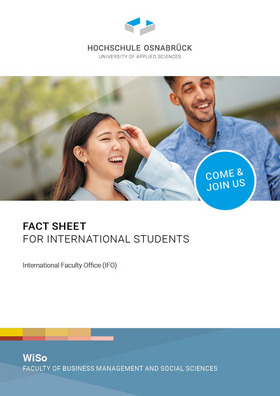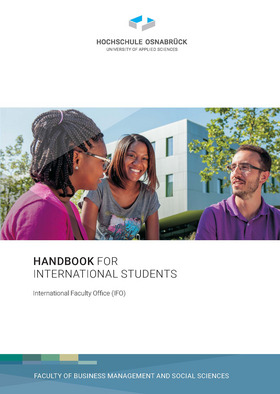Incoming Visiting Students
Academic calendars - fact sheet - handbook
Academic calendars - fact sheet - handbook
The academic year of Osnabrück University of Applied Sciences (OUAS) consists of two semesters.
The winter semester is the first part of the academic year. It begins on September 1 and ends on February 28. The lectures are held from mid-September to the beginning/middle of January. Subsequently, the three-week examination period lasts until the beginning of February.
The summer semester is the second part of the academic year and lasts from March 1 to August 31. The lectures are taught from the start of March until mid-June. The three-week examination period ends at the beginning of July.
During the semester break in February or from the beginning of July to mid-September, the international winter and summer programs take place at our university.
Important dates and deadlines at the Faculty of Business Management and Social Sciences (WiSo), of which you should keep track by all means, can be gathered from the following academic calendars:
Academic calendar - summer semester 2025

